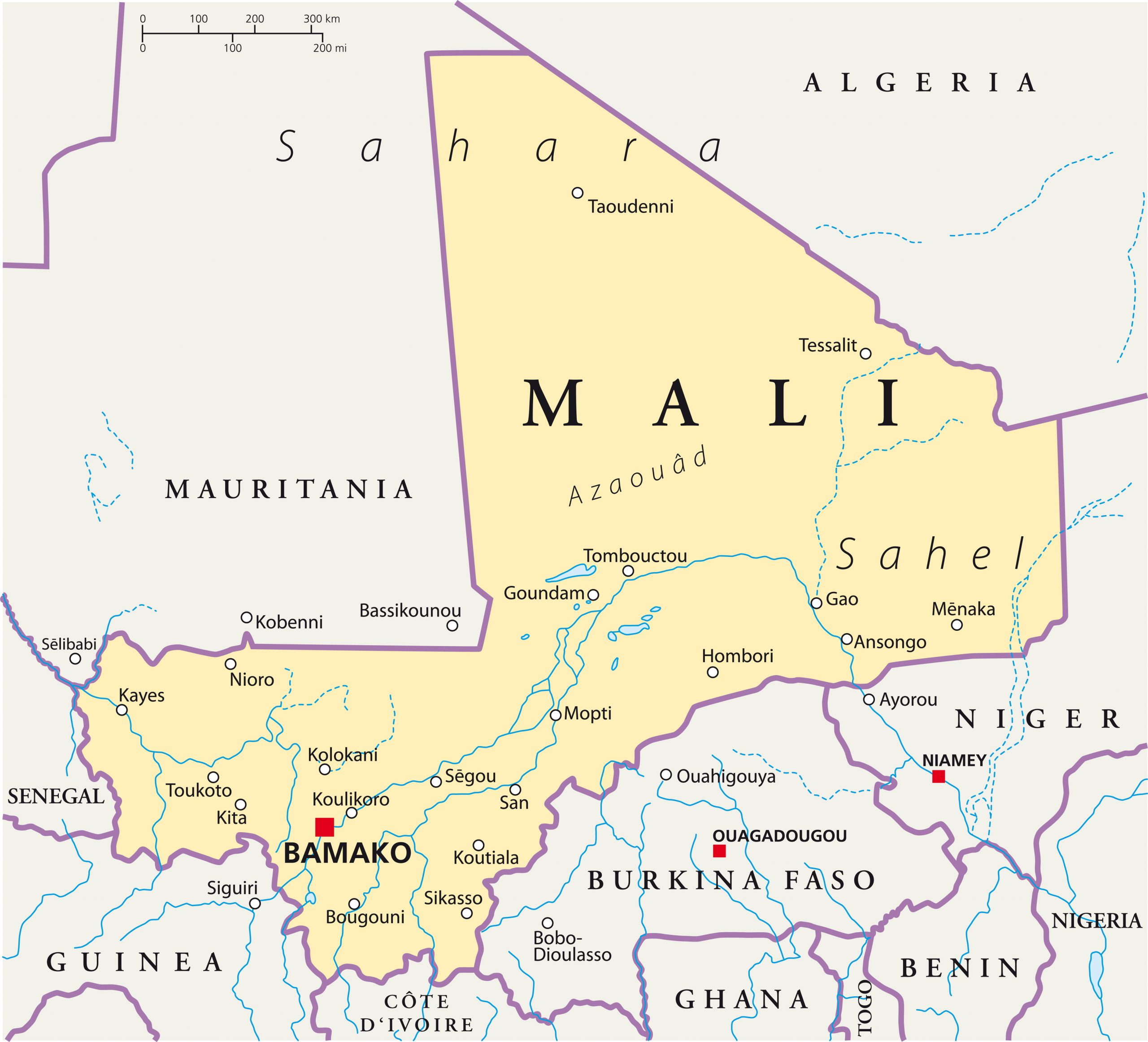On 11 January 2013, at the request of the interim Malian President, France intervened militarily and regained control of the three northern regions of Mali, held since mid-2012 by armed Islamist groups. With the Islamist threat currently reduced, the stabilisation of Mali depends on organising democratic elections, on national dialogue and reconciliation and on the sustainable development of the country.
Onset of the crisis and state of play

The security crisis in Mali started in 2012 with a Tuareg insurgency in northern Mali, led by the National Movement for the Liberation of Azawad (MNLA), and a military coup in the south overthrowing the President. Armed Islamist groups, such as transnational Al-Qaida in the Islamic Maghreb (AQIM), the Movement for Oneness and Jihad in West Africa (MUJAO) and the Malian group Ansar Dine, rapidly took control of Mali’s three northern regions after dislodging the MNLA. Their offensive was repelled by France’s “Operation Serval” in January 2013.
Currently, a 6 500-strong African-led International Stabilisation Mission (AFISMA) under the aegis of the Economic Community of West African States (ECOWAS) is deployed in Mali (UN Security Council resolution 2085). A new UNSC resolution 2100 established a UN Multidimensional Integrated Stabilisation Mission (MINUSMA) of 12 600 troops to take over from AFISMA on 1 July, 2013, despite some doubts about the decision. France will maintain a force of 1 000 troops, of the 4 000 now deployed in Mali. The EU has had a Training Mission (EUTM) in place in Mali since January 2013, to train the Malian military.
The transition phase
In early 2013, at the request of the international community the interim government presented a “Roadmap for transition“, which was adopted by the National Assembly of Mali. It focuses on two issues: the creation of a National Dialogue and Reconciliation Commission (CDR) and the organisation of presidential and legislative elections. The CDR was set up in March 2013 for a two-year period and it is tasked with supervising the dialogue “to promote reconciliation between all Malian communities”. The first round of presidential elections will take place on 28 July 2013.
Challenges
A long-term solution for the reconstruction of Mali needs to address also the deeper causes of the crisis. Northern Mali has suffered from economic under-development and neglect by the state. Food shortages, lack of infrastructure and public services coupled with a security vacuum and with the recent spill-over of the Libyan conflict paved the way for the crisis. Current challenges include: uncertain security in the north (Kidal town under MNLA control), as well as reports of the Malian army engaging in reprisal killings of Tuareg and Arab civilians; the problem of 174 000 Malian refugees and 140 000 internally displaced persons; organising representative elections, despite the political and logistical obstacles; engaging in dialogue with the MNLA and other parties that renounce terrorism; sufficient development aid to ensure socio-economic stability. Finally, the regional implications must be considered, some experts proposing the creation of a regional security mechanism to deal with transnational threats in the Sahel.
EU actions
In 2011, the EU adopted a Strategy for Security and Development in the Sahel. Besides the EUTM, inter alia, the EU has resumed full development aid to Mali (€250 million), has offered humanitarian assistance and €20 million from the Instrument for Stability. At an international donor conference in Brussels on 15 May 2013, pledges reached €3.25 billion, with €1.35 billion from the EU.
The European Parliament, in its resolutions on the situation in Mali (April 2012) and on the implementation of the CSDP (November 2012) called for a peaceful solution through political dialogue between all parties and supported the deployment of an EU CSDP mission.








Reblogged this on all around this world , funs,news….
[…] of concern to MEPs this week, they are also relevant to Mali. The country has entered a phase of reconstruction and democratisation. Their fight against corruption is an important element, as our keysource on Corruption and […]